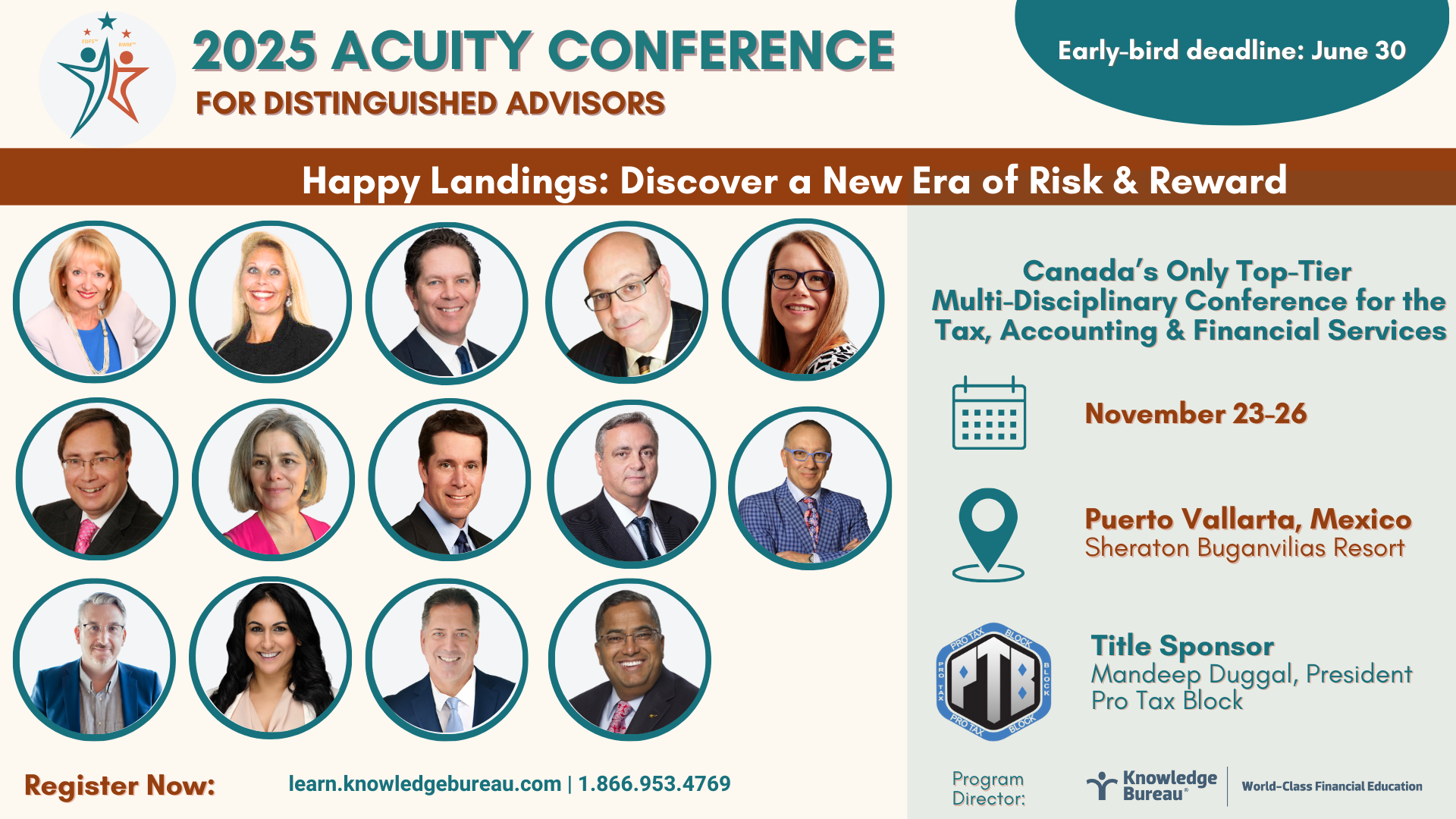Transitioning Our Economy Forward: Investing for Impact

Evelyn Jacks
We might be distracted by the political, tax and economic shocks dominating the daily news. But from an investment point of view, advisors may be missing something important. The very definition of “wealth maximization” as we have commonly known it, is not resonating there is a reason why: “business as usual” has eroded value and requires a shake up to build the economy we need in the future. The answer, for some, is “impact investing”, and there has never been a better time to consider this.
So much seems to be under significant threat these days: the environment, employment, small business survival, even how society and democracy is functioning. Investors and their advisors, however, have more choices than they may realize to influence the change they would like to see for future economic growth, and make good returns too. In short, it’s increasingly important to many investors, to consider how the current investment environment has threatened the underpinnings of our society, and to divert investments towards a new and better economy.
The language, the focus and the intent is different and perhaps uncomfortable for advisors. But make no mistake: investors are increasingly losing interest in maximizing wealth by  supporting “extractive capital” that is “degenerative” for society, the environment, and their children’s or grandchildren’s future. In fact, this is increasingly unacceptable.
supporting “extractive capital” that is “degenerative” for society, the environment, and their children’s or grandchildren’s future. In fact, this is increasingly unacceptable.
Investors want to discuss new choices with their advisors and it is time, for advisors to pay attention to this. There are several indicators:
- A recent semi-annual report from Millani found that high net worth investors have strong views on the lack of Canadian reporting against an EU taxonomy, which defines the economic activities that are considered environmentally sustainable.Note that63 percent say ‘the federal government has not moved fast enough in the development of a Canadian taxonomy leading to disappointment and a sense that Canada is losing its competitive position.’Further, the report found that “more than two fifths (43 percent) of Canadian institutional investors plan to launch impact products this year, according to research.”
- This follows a trend first noted in the first report in Canada (MaRS, July 2018) to explore the interest and activity of high net worth Canadians in impact investing, which found that
- Fully 90% of Canadian HNW investors are interested in impact investing.
- Almost half of these investors wanted to increase asset allocations in these investments within the next year.
- Investors want to explore impact investing options with their bank or advisor and that they are willing to take some risk and pay additional fees for impact investing.
- However, it was also found that there are barriers to impact investing including a lack of qualified advice, a lack of viable products and investment options, and lack of liquidity.
The good news is that “impact investing - notably in Canada - is robust in terms of offerings. For example, the Social Finance Fund of Canada has $750M invested in impact capital.
The Bottom Line? Especially during dramatic Black Swan events, like pandemics or global tariff announcements, investors face significant barriers in directing their investments more purposefully. This includes barriers inherent in the conversations they’d like to have with their advisors.
Take a new listen to what your investor clients are thinking. You may be surprised and at the same time enlightened.
Also consider attending the Acuity Conference for Distinguished Advisors November 23-26 in Puerto Vallarta this year. The theme is Happy Landings: Discover a New Era of Risk and Reward – appropriate to those thought leaders ready to remove the barriers to engaging investors of the future who are really interested in building a thriving new world.
There is an opportunity for investment professionals to inform their clients that they have a choice to move investor capital – at least some of it - towards creating and sustaining a new world poised to thrive. Let’s embrace it!